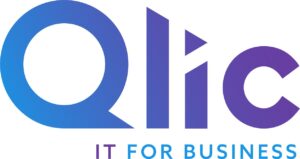It is inevitable that we will all lose data at some point in our lives. In today’s fast-paced world, it is essential to backup your files. We tend to store a multitude of things on our computer, from important documents to personal data. However, having all your data in one place is dangerous and if you’re not regularly backing up your computer, you could face losing these irreplaceable files forever. There are several ways that you can lose the data you have spent time creating and accumulating, including computer loss, theft, natural disaster, software malware and accidental deletion. The best way to prepare for these uncertainties is to have a good backup strategy in place. You may be wondering; how do I backup my computer? A computer backup is an exact copy of the original files that you have on your computer, meaning that you’ll have your data saved in two places. There are different options for backing up your computer and using multiple forms will minimize the risk of losing valuable data, as well as save you time and costs when things go wrong.
External Hard Drive Backup
You can move files from your computer’s hard drive to an external hard drive. Once synced to the drive, the external hard drive will store your files securely, offering protection in case something happens to your computer. If required, you can plug the external drive into a different computer and immediately have access to all your files. Although hard drives are relatively cheap and have a high storage capacity, they have a slow operating speed and are more prone to integrity failure or data loss.
Flash Drive Backup
This works in a similar way to an external hard drive but uses flash memory, which means it performs faster. They are smaller than external hard drives and highly portable. They typically last longer than hard drives because they do not have physically moving parts. However, they are more expensive, and their smaller size means they cannot hold as much data.
Internet Backup
There are many services which enable you to back up your files over the internet. These run in the background of your computer, automatically backing up your files to the service’s web storage unlike external drives. This form of backup provides greater security, protecting you against any type of data loss because data is stored offsite. However, drawbacks include limited storage issues, the necessity of internet connection and the risk of losing confidential data using a third party.
Cloud Storage Backup
Cloud storage services move files from your computer to a server in a data centre, so that they are remotely managed and backed up. As a user to the service, you can view, modify and delete your files online and access them from any location via the internet. As well as this easy accessibility, cloud storage can often reduce operating costs for businesses. The main downside is the concern with security and the privacy of storing data remotely, which can be completely negated by ensuring that your files are encrypted and stored with a reputable and secure provider. Qlic uses Tier 2 UK data centres with 24×7 surveillance and restricted access.
External drives are useful for quickly restoring files. However, it is advisable to have both offsite and online backups as this gives you a wider safety net. Backing up your computer’s data is critically important. For businesses, implementing backup strategies is especially crucial to ensure that important documents are not lost forever.
Cloud Storage is the best solution to back up your computer.
As a business, backing up a large number of computers can seem daunting. If you want to ensure your most important files are well protected, Qlic offer a variety of cloud services and our most popular service is Automated Daily Cloud Backup of your data. Our Technical Account Managers can help review your current infrastructure and determine whether a cloud-based alternative would be of greater benefit to the business.
If you would like to find out more, please contact us on [email protected] or call 02039043464.





